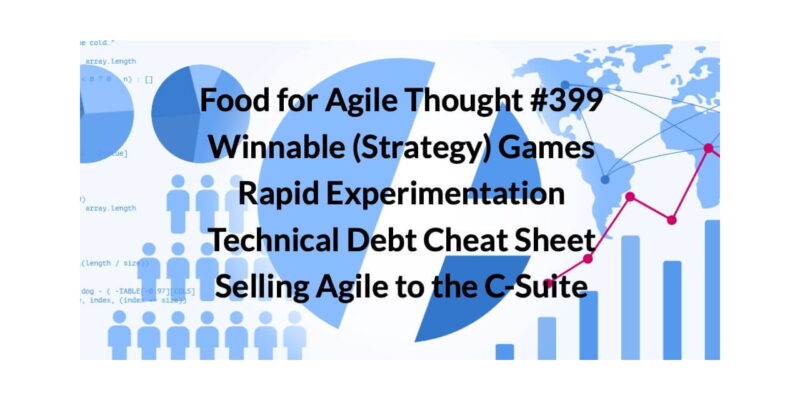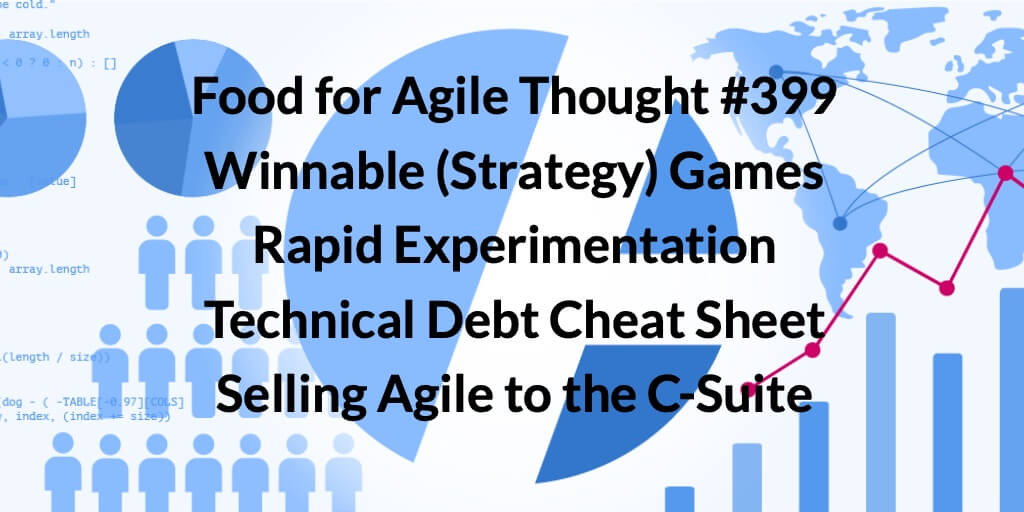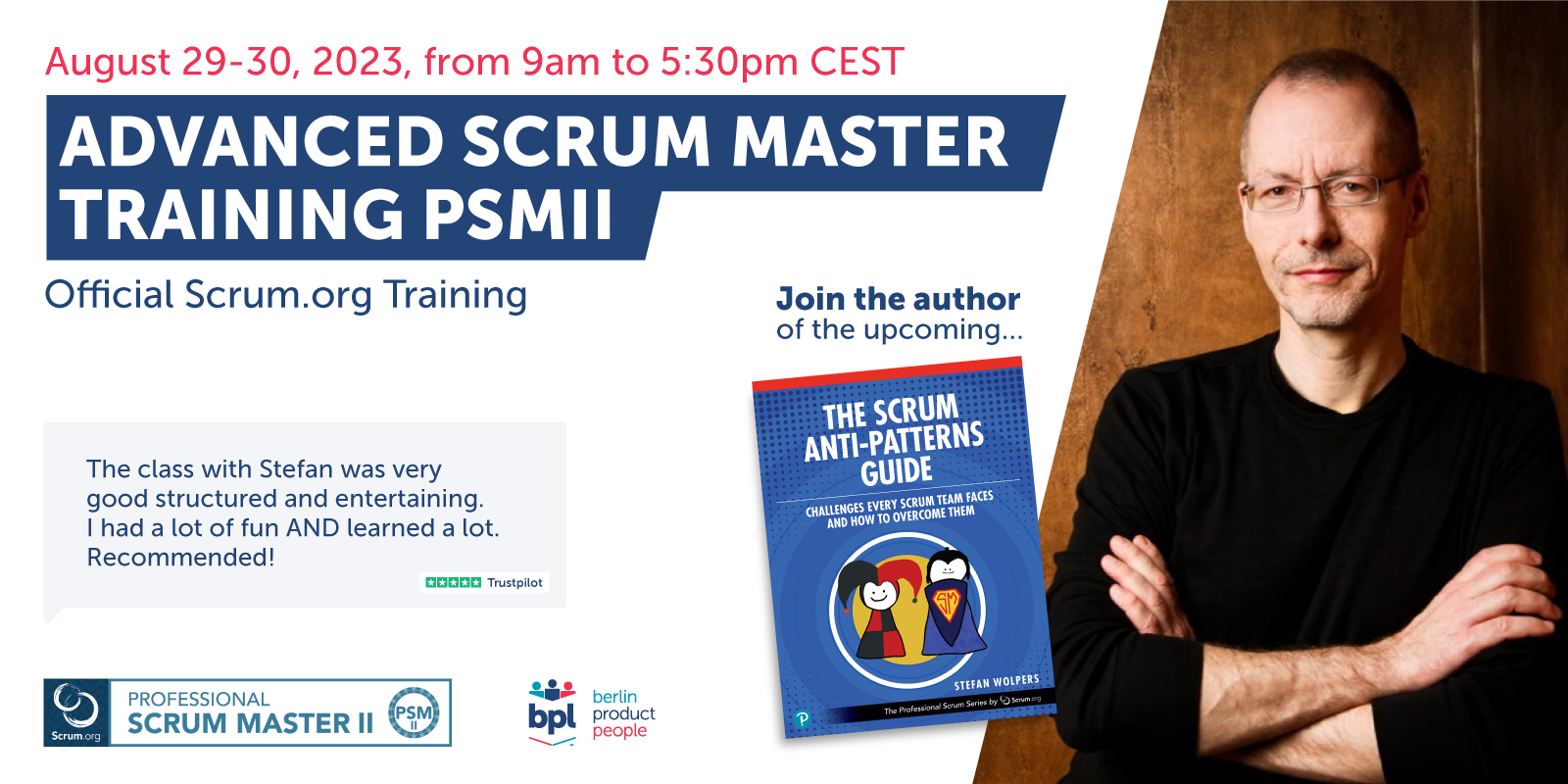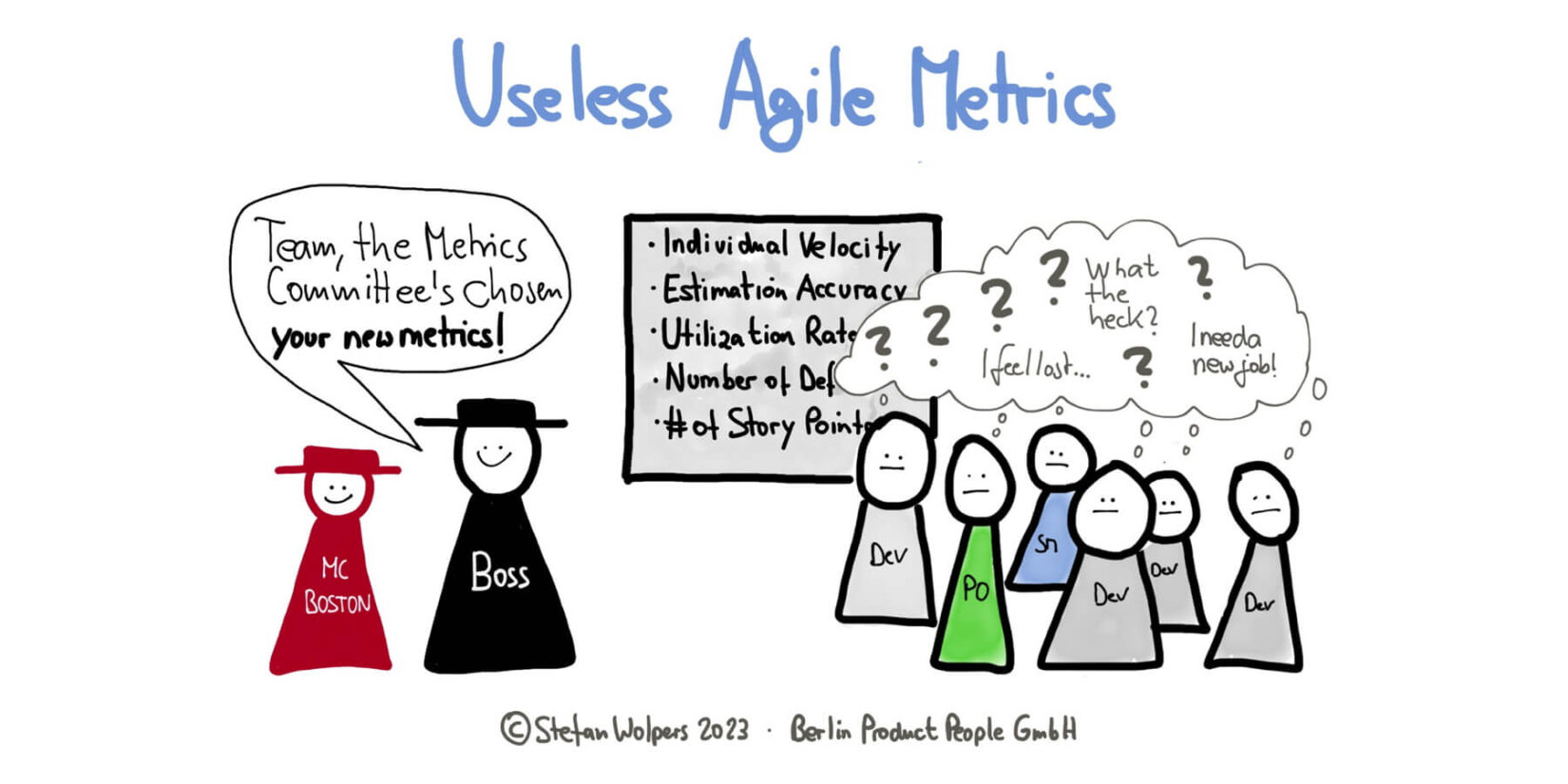TL; DR: Winnable Games — Food for Agile Thought #399
Welcome to the 399th edition of the Food for Agile Thought newsletter, shared with 47,711 peers. This week, John Cutler suggests considering your way of working as an enticing, challenging, and winnable game, and we dig into how to get bosses on board with Agile with trust-building tactics, busting fears around big shake-ups. Also, we flip the ADHD narrative, revealing its potential strengths for teams. Moreover, Fred Hebert argues that complexity is inevitable in life and systems, and efforts to control it overly can backfire. The goal, then, is to delay chaos by carefully steering complex systems.
Then, Aatir Abdul Rauf shares insights on what Product Managers can learn from Product Marketing Managers and vice versa, given Airbnb’s decision to eliminate the PM role and merge PM & PMM functions. Jason Cohen breaks down the essence of ‘leverage,’ achieving big impacts with little effort, while we explore the power of rapid experimentation in tackling uncertainties.
Finally, we use the Sydney Opera House’s infamous miscalculation to explain why we are rubbish at estimating and delve into probabilistic forecasting in Agile, analyzing data from 25 ASOS teams to test this forecasting method’s accuracy. Additionally, we learn more about FAST agile, a practice that remarkably enhances the scaling of super-sized teams and self-organization within organizations. We also share a cheat sheet for understanding tech debt.
🏅 The most popular discussion on LinkedIn this week was: Introducing: The Minimum Viable Library — Metrics & Measuring edition!
📖 Get notified when the Scrum Anti-Patterns Guide book is available!
Did you miss the previous Food for Agile Thought’s issue 398?
🗞 Shall I notify you about articles like this one? Awesome! You can sign up here for the ‘Food for Agile Thought’ newsletter and join 47,000-plus subscribers.
🎓 Join Stefan in one of his upcoming Professional Scrum training classes!
🏆 The Tip of the Week: Winnable Games
: Winnable and Unwinnable Games (Part 1)
John Cutler suggests considering your way of working as an enticing, challenging, and winnable game. This concept is at the core of the North Star Framework, encouraging autonomy and tying work to sustainable business outcomes. However, beware of setting up unwinnable games or not adding value to customers, employees, or the business.
🍋 The Lemon of the Week
(via Medium): What if you renamed all the scrum events?
Where is the benefit of recommending ointment when someone needs surgery?
➿ Agile & Scrum
(via Leading Agile): Selling Agile to the C-Suite to Get Buy-In
Dennis Stevens digs into how to get bosses on board with Agile. Dive into the trust-building tactics and busting fears around big shake-ups.
(via InfoQ): Embracing ADHD and Other Neurodivergencies in Software Development Teams
Dietrich Moerman flips the ADHD narrative, revealing its potential strengths for teams. We need to ditch the stigma and foster psychological safety to build neuro-inclusive spaces, cut back on cognitive overload, respect focus time, and offer solid mentoring.
: Embrace Complexity; Tighten Your Feedback Loops
Fred Hebert argues that complexity is inevitable in life and systems, and efforts to control it overly can backfire. The goal, then, is to delay chaos by carefully steering complex systems.
🎓 🖥 🇬🇧 Advanced Professional Scrum Master Online Training w/ PSM II Certificate — August 20-30, 2023
Discover Scrum’s four success principles in this official Scrum.org Advanced Scrum Master training class including the industry-recognized PSM II certification. The PSM II training class is designed as a live virtual class and will be offered in English.
Enjoy the benefits of a compact immersive class with like-minded agile peers from 09:00 – 17:30 o’clock CEST.
Learn more: 🖥 🇬🇧 Advanced Professional Scrum Master Online Training w/ PSM II Certificate — August 20-30, 2023.
👉 From time to time, we can offer last-minute seats for training classes at cost to individuals who do not have access to a corporate training budget. If you like to be notified about these opportunities, please register here.
🎯 Product
: Why did Airbnb combine Product Management with Product Marketing?
Airbnb’s decision to eliminate the PM role and merge PM & PMM functions has sparked a lively discussion. Reflecting on nine years in a hybrid PM/PMM role, Aatir Abdul Rauf shares insights on what PMs can learn from PMMs and vice versa.
(via Jason Cohen): The three kinds of leverage that anchor effective strategies
In this article, Jason Cohen breaks down the essence of ‘leverage,’ achieving big impacts with little effort. Learn to utilize your unique strengths to create ‘head-scratching’ results and outperform the competition.
(via Medium): Rapid Experimentation: The Fast Track to Overcoming Uncertainty
Brant Cooper explores the power of rapid experimentation in tackling uncertainties, unearthing the potential of testing ideas quickly, challenging assumptions, and reducing failure risk for better decision-making and strategic planning.
📯 Useless Agile Metrics
Ideally, a metric is a leading indicator for a pattern change, allowing your Scrum team to analyze the cause in time and take countermeasures. However, what if you picked the wrong metrics? What if these useless agile metrics lead you in the wrong direction while providing you with the illusion that you know where your team is heading?
Learn more about useless agile metrics, from individual velocity to estimation accuracy to utilization rates.
Learn more: Useless Agile Metrics.
🛠 Concepts, Tools & Measuring
(via Medium): Why We’re So Bad At Estimating. And What We Can Do About It
Ever thought, ‘Why are we rubbish at estimating?’ Kyle Evans uses the Sydney Opera House’s infamous miscalculation to explain the problem.
(via Medium): The Full Monte. Just how accurate are Monte Carlo [Simulations?]
Nick Brown delves into probabilistic forecasting in Agile, analyzing data from 25 ASOS teams to test this forecasting method’s accuracy.
(via DZone): Can a Team Have 150 People in It? FAST Agile Says Yes
Jade Rubick delves into FAST agile, a practice that remarkably enhances the scaling of super-sized teams and self-organization within organizations.
🎶 Encore
: Technical Debt Cheat Sheet for Non-technical People
Carl Vellotti shares a cheat sheet for understanding tech debt. If you’re non-technical, this resource – outlining types, causes, mitigation strategies, and long-term impacts of tech debt – will help foster more constructive dialogues.
(via Shipping Tomorrow): What to do when you don’t have ‘em answers 🥳
Four strategies product managers may apply to deflect stakeholder questions, cartoon edition.
📅 Scrum Training & Event Schedule
You can secure your seat for Scrum training classes, workshops, and meetups directly by following the corresponding link in the table below:
See all upcoming classes here.
You can book your seat for the training directly by following the corresponding links to the ticket shop. If the procurement process of your organization requires a different purchasing process, please contact Berlin Product People GmbH directly.
📺 Join 5,000-plus Agile Peers on Youtube
Now available on the Age-of-Product Youtube channel to improve learning, for example, about agile laggards:
- Hands-on Agile EXTRA: How Elon Musk Would Run YOUR Business with Joe Justice.
- Hands-on Agile 50: The Product Community of Practice with Petra Wille.
- Hands-on Agile 46: The Agile Fluency Model ® with Diana Larsen.
- Hands-on Agile 43: Outcome-Based Product Planning with Jeff Gothelf.
- Hands-on Agile 42: Lean Roadmapping and OKRs with Janna Bastow.
- Hands-on Agile 38: The Product Owner with Roman Pichler.
✋ Do Not Miss Out and Learn more about Winnable Games — Join the 12,000-plus Strong ‘Hands-on Agile’ Slack Community
I invite you to join the “Hands-on Agile” Slack Community and enjoy the benefits of a fast-growing, vibrant community of agile practitioners from around the world.
If you like to join all you have to do now is provide your credentials via this Google form, and I will sign you up. By the way, it’s free.
Help your team to explore winnable games by pointing them to the free Scrum Anti-Patterns Guide:








